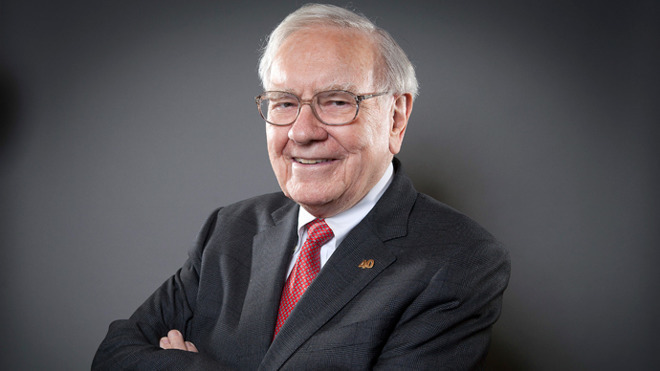Warren Buffett's Berkshire Hathaway cut its stake of Apple stock by 6% in the fourth quarter of 2020, though it remains the firm's number one holding.
AAPL still remains the top stock in Berkshire Hathaway's portfolio by market value and the second place stock by numbers of shares held, according to Investor's Business Daily. Apple shares make up 10.6% of Buffett's portfolio.
The sale marks the second consecutive quarter in which Buffett's holding company trimmed its Apple stake. In the third quarter of 2020, Buffett sold 36 million Apple shares, reducing his stake by about 3.7%.
Along with the Apple trim, Buffett opened new stakes in Verizon, Chevron, Marsh & McLennan, and EW Scripps. The Verizon stake was a big one, with Buffett paying $8.62 billion for 147 million shares. The carrier's stock now accounts for 3% of Berkshire Hathaway's portfolio.
Additionally, he dropped Pfizer, JPMorgan Chase, Barrick Gold, M&T Bank, and PNC Financial entirely and grew stakes in T-Mobile by 117%, in Kroger by 34%, and in Merck by 28%.
The fourth quarter moves capped off an interesting year for Berkshire Hathaway. In 2020, he poured $9 billion in stock buybacks in the third quarter and dumped all of its airline stocks.
 Mike Peterson
Mike Peterson








 Charles Martin
Charles Martin
 Christine McKee
Christine McKee
 Wesley Hilliard
Wesley Hilliard
 Malcolm Owen
Malcolm Owen
 Andrew Orr
Andrew Orr
 William Gallagher
William Gallagher
 Sponsored Content
Sponsored Content








5 Comments
But so is KO.
I do not understand why he still keeps KO, but has been selling shares of AAPL for several quarters.
It’s called “locking in profits”. Professional investors regularly trim holdings to realize profits on a percentage of holdings. Does not mean they have lost faith in a stock — they would get out if they did — but rather locking in profits and re-allocating risk to other opportunities.
I think there is more cuts to come, given that Berkshire is attempting to it’s own investing rules, and represents 10.6% of it’s portfolio.
What Berkshire has effectively done with its Apple holdings over the last 2 years, intentionally or not, is convert most of Apple's share buybacks into dividends. And, based on timing, it's likely done that at a favorable conversion rate.
That's one of the good things about buybacks as compared to dividends. If a given shareholder would have preferred dividends rather than buybacks (i.e., they'd have preferred cash instead of more equity in the company), they can recreate the effect of having dividends instead of buybacks.
That may not have been Berkshire's intent. But it's gone from owning about 5.398% of Apple at the end of 2018 to owing about 5.395% of Apple at the end of 2020. If it hadn't net sold Apple shares, it would have owned about 6.070% of Apple at the end of 2020. So, proportionally as compared to the number of Apple shares it owns, it's sold about as many shares as Apple has bought back minus the amount of new shares Apple has issued (through, e.g., RSUs).